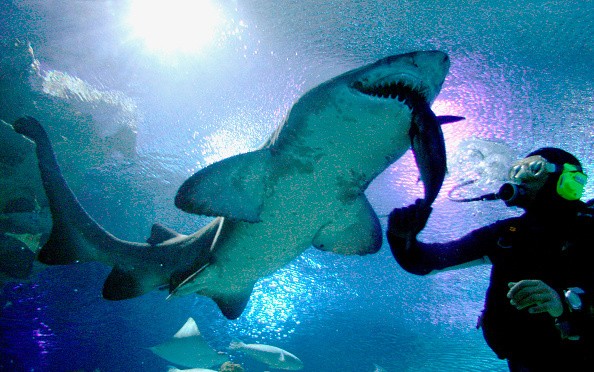Sharks shaped our oceans into the diversified environments those who are today.
Sharks, as apex predators (animals at the top of the food chain), serve a vital function in the ecosystem by keeping the species below them in the food chain.
According to the Sea Museum, by eliminating the sick and weak, the ocean and fish populations are kept healthy.
Sharks have lived in every ocean on the planet for 400 million years.
Few species have existed for as long in our world, and even fewer have been misunderstood.
The fact is that these strange, majestic hunters are critical to the balance of the coastal environment, contribute to local economics, and are worth much more alive than dead, as per Conservation.org.

Here are interesting facts about sharks:
Shark tourism provides over USD 300 million per year
Sharks help the local economy by promoting ecotourism.
The public's love of sharks has evolved into a lucrative ecotourism sector in areas like the Bahamas, South Africa, and the Galápagos Islands during the last few decades.
These operations, which attract companies such as boat rental and diving enterprises, are estimated to employ 10,000 people across 29 nations.
Megalodon was the world's biggest shark.
The Megalodon (meaning "big tooth") controlled the waters 20 million years ago and was a close ancestor of today's great white shark.
Based on fossil evidence, they grew to be between 15 and 18 meters long and weighed more than 25 tonnes, dwarfing the great white (6 meters in length and 2.2 tonnes)
Some sharks are luminescent in the dark.
Scientists found in 2014 that the rare chain catshark and swell shark communicate by emitting shimmering light from their skin in patterns that are unique to each species and even sex.
The brilliant green specks are invisible to the human eye and can only be seen with a blue filter light shining on them.
'Molecular inside their scales modify how shark skin interacts with light, taking in blue photons and sending out green,' a team of researchers revealed in 2019.
Every year, humans kill up to 100 million sharks.
Sharks should be wary of people since many shark species are threatened by human activity.
Sharks are being overfished all over the world to meet the massive demand for shark fin soup, a delicacy eaten at high-level social and political gatherings in Asia.
But there is a silver lining to this bleak circumstance.
Sharks have distinct personalities.
Researchers at Macquarie University revealed in 2016 that Port Jackson sharks, like humans, have distinct personalities.
The study found that each shark reacts differently to stress and novel situations, with some being more daring than others.
There are over 400 species on the planet.
Sharks, like humans, come in a variety of forms and sizes.
On one extreme, there's the whale shark, which can grow to be up to 12 meters long, and on the other, there's the dwarf lantern shark, which can fit in the palm of your hand.
The Australian oceans are home to over 180 different species.
Sharks are also beneficial to humans for non-consumptive reasons such as ecotourism, smart design, and carbon cycle management in the ocean, which provides hope to shark conservation initiatives throughout the world.
© 2026 NatureWorldNews.com All rights reserved. Do not reproduce without permission.





